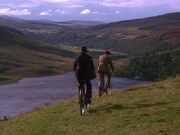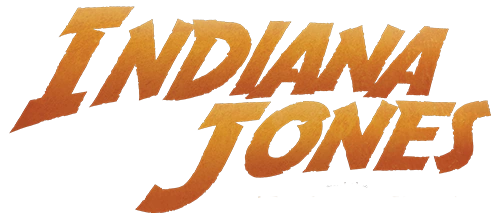No edit summary Tag: Visual edit |
(I gave a What If and replaced a few things.) Tags: Visual edit Mobile edit |
||
| Line 1: | Line 1: | ||
{{Infobox country |
{{Infobox country |
||
| − | |name= |
+ | |name=Irish Republic |
|flag=[[File:IrishFlag.svg|250px]] |
|flag=[[File:IrishFlag.svg|250px]] |
||
| − | |government= |
+ | |government=Democracy |
| − | |population= |
+ | |population=4.9 Million |
|cities=*[[Dublin]] {{C|capital}} |
|cities=*[[Dublin]] {{C|capital}} |
||
| + | *[[Cork]] {{BC|second biggest city}} |
||
| − | |cultures= |
+ | |cultures=Celtic |
| − | + | Gaelic |
|
| − | }} |
||
| + | |map=Western Europe|area=|preceded=Ireland|followed=IRA (Irish Republican Army)|Enemy=}} |
||
'''Ireland''' is an island country off the northern coast of Europe, just west of [[Great Britain]]. In prehistoric times, early settles farmed and built stone structures on the island. Celtic people emerged on the island during the Iron Age. Later, Christianity spread to the island, followed by Viking, Norman, and English conquests. In 1801, Ireland became an integral part of the [[United Kingdom]]. Famine in the 1840s caused a severe population drop due to starvation and emigration (many going to the [[United States of America|United States]]). By 1914, Ireland had earned Home Rule for their nation, but it was suspended during [[World War I]]. |
'''Ireland''' is an island country off the northern coast of Europe, just west of [[Great Britain]]. In prehistoric times, early settles farmed and built stone structures on the island. Celtic people emerged on the island during the Iron Age. Later, Christianity spread to the island, followed by Viking, Norman, and English conquests. In 1801, Ireland became an integral part of the [[United Kingdom]]. Famine in the 1840s caused a severe population drop due to starvation and emigration (many going to the [[United States of America|United States]]). By 1914, Ireland had earned Home Rule for their nation, but it was suspended during [[World War I]]. |
||
| − | In [[1916]], an uprising at Easter in Dublin was violently suppressed, swaying public opinion toward independence. In 1919, three quarters of the island (all but the northernmost Protestant areas) had chosen independence, and war with the United Kingdom was fought. By 1921, independence for |
+ | In [[1916]], an uprising at Easter in Dublin was violently suppressed, swaying public opinion toward independence. In 1919, three quarters of the island (all but the northernmost Protestant areas) had chosen independence, and war with the United Kingdom was fought. By 1921, independence for Ireland. The Irish Free State fell into civil war, but eventually stabilized after [[World War II]], becoming the Irish Republic. |
During World War II, Ireland was officially neutral, though many Irish enlisted in the British military, and Allied forces could use some Irish airspace, though there were pro-Fascist [[Blueshirts|Blueshirt]] movements as well. |
During World War II, Ireland was officially neutral, though many Irish enlisted in the British military, and Allied forces could use some Irish airspace, though there were pro-Fascist [[Blueshirts|Blueshirt]] movements as well. |
||
| Line 22: | Line 23: | ||
In March [[1945]], Jones oversaw a dig in a [[New Grange Mound|mound]] near [[New Grange]], where he was assisted by [[Brendan O'Neal]]. After discovering some spiral carvings in the rock, Jones received a message from his father about potential Nazi interest in the [[Spear of Longinus]] in [[Glastonbury]]. The local [[Blueshirts]], organized by the [[Connely|innkeeper]], tried to kill Jones, but he escaped with O'Neal's help. They got to England, where met up with [[Henry Walton Jones, Senior|Henry Jones, Sr.]] and tried to stop the Nazi attempt to re-assemble the Spear. With their new friend, [[Rebecca Stein]] captured by the Nazis, the Joneses and O'Neal returned to Ireland - the younger Jones set off to rescue Stein and a piece of the Spear, and the older Jones and O'Neal back to the dig site to reassemble the Spear. Eventually, the Spear was re-built, and Nazi agent [[Dieterhoffmann]] along with his son, [[Seigfried]], were defeated. |
In March [[1945]], Jones oversaw a dig in a [[New Grange Mound|mound]] near [[New Grange]], where he was assisted by [[Brendan O'Neal]]. After discovering some spiral carvings in the rock, Jones received a message from his father about potential Nazi interest in the [[Spear of Longinus]] in [[Glastonbury]]. The local [[Blueshirts]], organized by the [[Connely|innkeeper]], tried to kill Jones, but he escaped with O'Neal's help. They got to England, where met up with [[Henry Walton Jones, Senior|Henry Jones, Sr.]] and tried to stop the Nazi attempt to re-assemble the Spear. With their new friend, [[Rebecca Stein]] captured by the Nazis, the Joneses and O'Neal returned to Ireland - the younger Jones set off to rescue Stein and a piece of the Spear, and the older Jones and O'Neal back to the dig site to reassemble the Spear. Eventually, the Spear was re-built, and Nazi agent [[Dieterhoffmann]] along with his son, [[Seigfried]], were defeated. |
||
| + | |||
| + | == What if == |
||
| + | If Ireland Joined World War 2, they would likely help Britain against Nazi Germany. Though they would be Vulnerable by Operation Green, it will not happen due to Britain blockading around Ireland to support it. |
||
| + | |||
| + | t wouldn't change much besides adding a few more Troops and a United Ireland. |
||
| + | |||
| + | If Ireland lost The Easter Rising, they would most likely rebel in the Future, Possibly During World War 2, except on the Nazis, it would most likely end up with a Nazi Ireland. |
||
| + | |||
==Notable Irish== |
==Notable Irish== |
||
Revision as of 18:14, 18 September 2020
Ireland is an island country off the northern coast of Europe, just west of Great Britain. In prehistoric times, early settles farmed and built stone structures on the island. Celtic people emerged on the island during the Iron Age. Later, Christianity spread to the island, followed by Viking, Norman, and English conquests. In 1801, Ireland became an integral part of the United Kingdom. Famine in the 1840s caused a severe population drop due to starvation and emigration (many going to the United States). By 1914, Ireland had earned Home Rule for their nation, but it was suspended during World War I.
In 1916, an uprising at Easter in Dublin was violently suppressed, swaying public opinion toward independence. In 1919, three quarters of the island (all but the northernmost Protestant areas) had chosen independence, and war with the United Kingdom was fought. By 1921, independence for Ireland. The Irish Free State fell into civil war, but eventually stabilized after World War II, becoming the Irish Republic.
During World War II, Ireland was officially neutral, though many Irish enlisted in the British military, and Allied forces could use some Irish airspace, though there were pro-Fascist Blueshirt movements as well.
The Irish culture is known for its contributions to literature, drama, and music in both the English and Irish languages. In the modern era, Ireland is known for being strongly Roman Catholic (except Northern Ireland, which is predominantly Protestant).
Adventures in Ireland

Indiana Jones cycling in Ireland.
In April 1916, Indiana Jones and Remy Baudouin travelled to Ireland, on their way from Mexico to London. Disembarking at the port of Queenstown they hitchhiked through the countryside to Dublin. There they found work in a pub so that they could earn enough to buy passage to London. At the pub Indy met playwright Sean O'Casey, who showed him Irish theater and spoke of a socialist revolution for Ireland. Jones pursued the affections of the Maggie Lemass but could not understand the Fenian politics of her brother Sean Lemass. After witnessing the Easter Rebellion, an Irish attempt toward freeing itself of British rule and seeing Sean imprisoned, Indy and Remy leave for London to enlist in the war.
In March 1945, Jones oversaw a dig in a mound near New Grange, where he was assisted by Brendan O'Neal. After discovering some spiral carvings in the rock, Jones received a message from his father about potential Nazi interest in the Spear of Longinus in Glastonbury. The local Blueshirts, organized by the innkeeper, tried to kill Jones, but he escaped with O'Neal's help. They got to England, where met up with Henry Jones, Sr. and tried to stop the Nazi attempt to re-assemble the Spear. With their new friend, Rebecca Stein captured by the Nazis, the Joneses and O'Neal returned to Ireland - the younger Jones set off to rescue Stein and a piece of the Spear, and the older Jones and O'Neal back to the dig site to reassemble the Spear. Eventually, the Spear was re-built, and Nazi agent Dieterhoffmann along with his son, Seigfried, were defeated.
What if
If Ireland Joined World War 2, they would likely help Britain against Nazi Germany. Though they would be Vulnerable by Operation Green, it will not happen due to Britain blockading around Ireland to support it.
t wouldn't change much besides adding a few more Troops and a United Ireland.
If Ireland lost The Easter Rising, they would most likely rebel in the Future, Possibly During World War 2, except on the Nazis, it would most likely end up with a Nazi Ireland.
Notable Irish
- Sean Lemass
- Maggie Lemass
- Sean O'Casey
- William Butler Yeats
- Brendan O'Neal
- Brian Boru
- Thomas Andrews
Locations in Ireland
Appearances
- The Young Indiana Jones Chronicles – "Ireland, April 1916" → Love's Sweet Song
- The Irish Rebellion
- Indiana Jones Adventure World
- Indiana Jones and the Army of the Dead (Mentioned only)
- Indiana Jones and the Spear of Destiny
- Indiana Jones and the Iron Phoenix
Sources
- The World of Indiana Jones
- Indiana Jones and the Lands of Adventure
- Sean O'Casey vs. Ireland (Non-fiction source)
- Ireland - The Power of the Poets (Non-fiction source)
